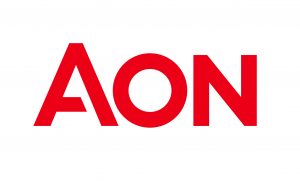How will the HEAR help you get a graduate job as an actuary? In this article, we look at everything you need to know about the Higher Education Achievement Report.
The HEAR, or Higher Education Achievement Report, is an official record of your achievements at university to share with employers. Introduced in 2008, the HEAR is ‘designed to encourage a more sophisticated approach to recording student achievement’.
There are currently 90 universities and colleges implementing, or planning to implement, the Higher Education Achievement Report including the University of Manchester and the University of St. Andrews.
So what does the Higher Education Achievement Report consist of? And what are the benefits?
What is the Higher Education Achievement Report?
As mentioned above, the HEAR is an official record of your achievements at university. It is intended as a companion to, not a replacement of, your degree certificate. Essentially, it is a new way of showing employers all of your achievements at university.
The idea of the HEAR is to represent all of the knowledge and skills that you have gained throughout your studies in one straightforward document, of which is accessible online, for the benefit of future employers. The document is updated with all your achievements throughout your degree until you graduate.
What does the HEAR include?
Your HEAR will include a breakdown of the modules you’ve taken, what they involved and your results. Not only that, but it also includes:
- Extra-curricular activities
- Voluntary work
- Prizes
- University responsibilities, such as offices held in the student union or societies
How will this information look on my HEAR?
Information on your Higher Education Achievement Report is presented in this structure:
- Personal information – name, date of birth, student ID etc.
- Qualification & title – confirmation of your degree title
- Your degree’s context in the national qualifications framework
- Your degree’s requirements and contents, and your degree classification
- Professional status (if applicable)
- Your recognised non-academic achievements
- Any awards or prizes that you’ve achieved
What are the benefits of a Higher Education Achievement Report?
The HEAR distinguishes your student experience, helping you to stand out from other candidates to employers. It also helps direct focus towards extra-curricular achievements as well as academic ones which promotes inclusivity.
Some of the benefits of this include helping you to:
- Identify gaps in your skill set and plan future activities to develop those skills
- Secure internships
- Write applications, working as an ‘aide memoire’
- Authenticate statements made to employers
When was the HEAR introduced?
The Higher Education Achievement Report was introduced in 2007 after it was recommended that a new document was introduced to enable universities to provide a fuller record of student achievement. And, that document was the Higher Education Achievement Report, which has been designed to add value to the student experience for both students and employers.
It was initially trialled in 30 institutes across the UK, with 90 institutions now using it today.
If you would like to now more, you can take a look at the Higher Education Academy’s video below, or visit the HEAR website.




